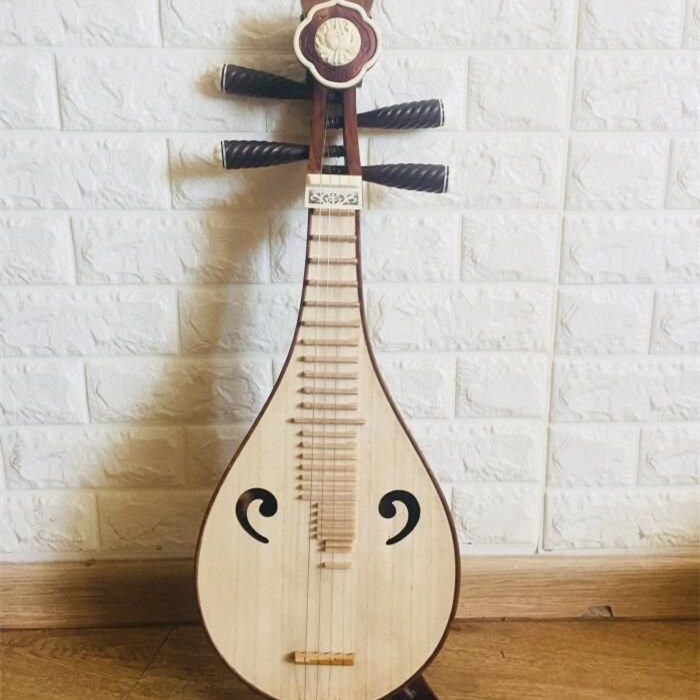Liuqin History and Development Status
The history of Liuqin is relatively simple. There is almost no record of its formation and historical evolution in historical records. There is only a story circulating in Shandong: about two hundred years ago, in Linyi, Shandong, there were a pair of poor brothers named Wu Da Tuan and Wu Er Tuan often beg for food and make a living in Xuzhou. One day, the brothers were starving and cold, and slept in a broken temple outside the city at night. Thinking of the insults and suffering they suffered when begging for food, the brothers could not help but cry relative to each other and burst into tears. Suddenly they raised their heads and saw the majestic statues of the Four Great Vajras. One of them was playing the pipa with his fingers. The brothers suddenly had an idea and discussed: We might as well make a pipa and beg for food. Wouldn't it be better than begging from house to house? So, the brothers made a local pipa with willow wood imitating the pipa in King Kong's hands. From then on, the brothers embraced the pipa, played and sang the desolate tunes of their hometown, and continued their begging career. With the passage of time, this form of singing has spread among the people and has gradually developed into a distinctive "Liuqin Opera". Especially in southern Shandong, northern Jiangsu and other regions, it is deeply welcomed and loved by people. Later, the two brothers, Wu Datuan and Wu Ertuan, were also respected by the artists of Liuqin Opera as Patriarchs.

After the founding of New China, in order to give full play to the performance of the liuqin, the technicians of the Xuzhou Musical Instrument Factory and the experts of liuqin performed a lot of useful work and began to carry out a comprehensive reform of the liuqin. The folk liuqin with seven frets, a range of one and a half octaves, rough timbre and poor expressiveness has been transformed; on the basis of retaining the original style, characteristics and advantages, a four-string, twenty-four fret, A new type of liuqin with a sound range of nearly four octaves, beautiful timbre, and extremely rich expressiveness. It is particularly worth mentioning that Mr. Wang Huiran, a musical instrument reformer and performer, has made certain contributions to the standardization of liuqin performance, the systematization of liuqin learning and the creation of liuqin repertoire, and has played a positive role in the popularization and development of liuqin. push. At the same time, it also fills the gap of the lack of high music instruments in China's national orchestra plucked instruments for many years.
Liuqin has actually only been on the music stage in China for more than 40 years, but its rapid development is gratifying. Due to the unique acoustic effect of liuqin, the main theme of the high-pitched area and some highly skilled cadenzas are often played in the band. At the same time, when it cooperates with Western bands, it also has a different mood. Now, Liuqin is very popular not only in China, but also in Hong Kong, Taiwan, Singapore, the United States and other places. In the garden of Chinese national musical instruments, this charming little flower is attracting more and more people's attention and love.
 渝公网安备 50010702504639号
渝公网安备 50010702504639号